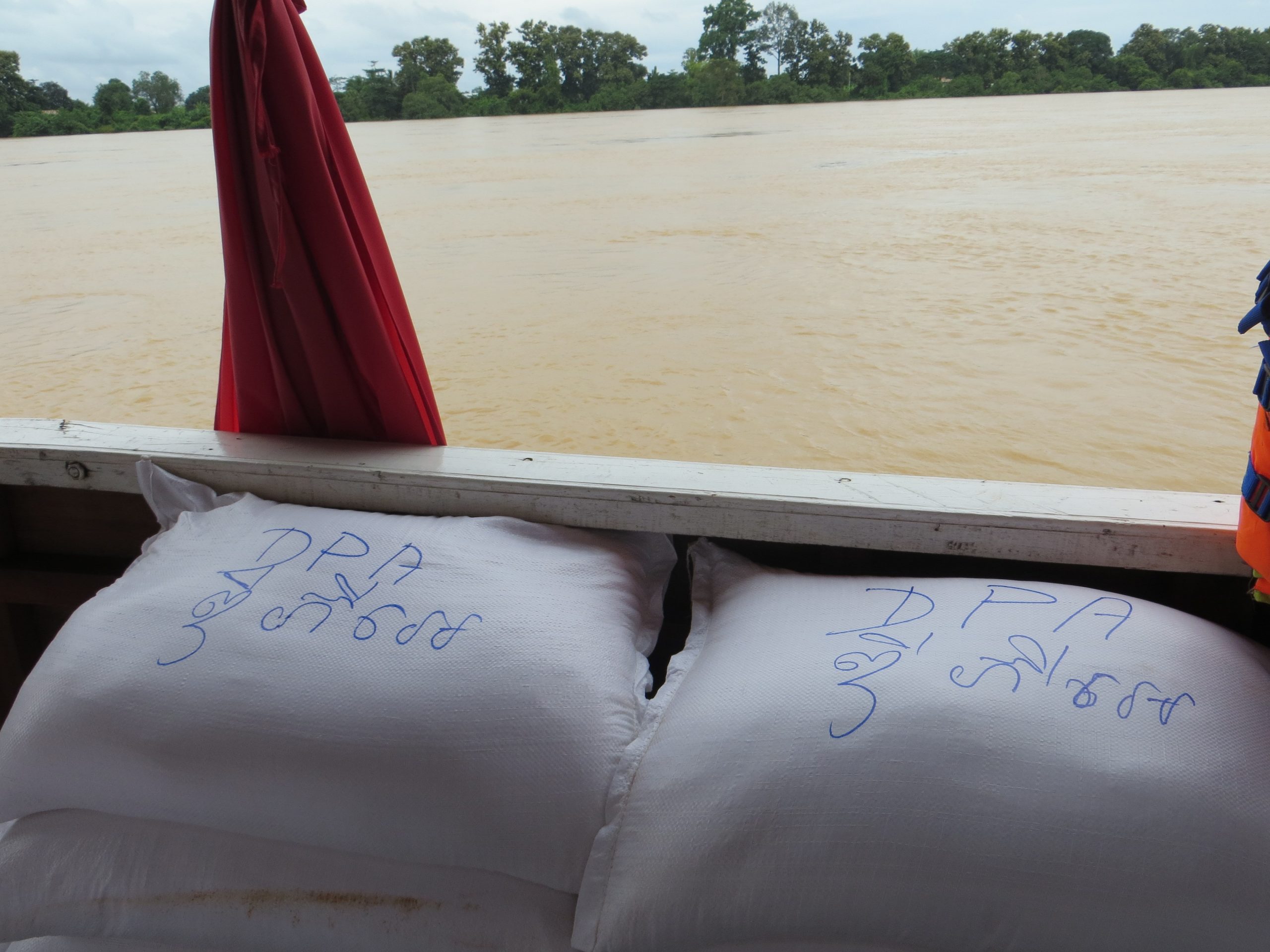Major monsoon flooding has caused severe damage throughout northeast Cambodia. Many of those feeling the impact of these floods are in villages where DPA has been working with communities to improve their rights, health and sanitation, and livelihoods. To date, nine of DPA’s target villages in Ratanakiri province and seven in Stung Treng province have been affected. As the water levels rose, rescue boats have been helping villagers to escape to higher ground, but these people are now in need of emergency support such as shelter, food and clean drinking water. In Stung Treng alone, over 1160 villagers that DPA works with have been affected.
Project staff have been in constant contact with flood-affected villagers and local authorities about the immediate needs of communities. As a result, DPA has spent much of the past week providing emergency relief assistance to those affected by the flooding in its target areas, focusing on the immediate shelter, food and sanitation needs experienced by those displaced.
A support team was quickly assembled in Phnom Penh to purchase essentials such as tents, rice, noodles and drinking water, which were transported to regional towns and distributed to the affected communities. In Stung Treng province, the team hired local ferries to reach those stranded by floodwaters, as river transportation is common in this area. However, the Ratanakiri team faced significant logistical challenges in reaching the flood affected villages, as the relief materials from Phnom Penh needed to be transported a further 40-50km across the flooding. The boats available in Ratanakiri tend to be small craft for a limited number of passengers, so ferrying the 20 tonnes of supplies across this landscape is a major operation.
Distribution of assistance is being carried out in collaboration with District Disaster Management Committee and Commune Disaster Management teams. Having already established good relationships with these communities, DPA’s Ratanakiri team is providing assistance to village disaster management teams and it is anticipated that more requests will be received when the flood waters recede and staff are able to access more remote areas.
In addition to displacing people from their homes, the floodwaters have destroyed large areas of crops in the region, which will have a long-term impact on the livelihoods of these communities once they are able to return to their villages. Initial reports estimated that in Ratanakiri province, in Chey Udom commune alone over 185 hectares of rice field have been destroyed by the floods. The flooding has halted and in some cases destroyed many of the rice production and home-gardening activities carried out by the project to improve the livelihoods of villagers, so once the floodwaters recede, DPA staff will be busy assessing the damage and replacing the crops that households have lost.
DPA’s previous links with these communities are allowing the organisation to assess the needs of those affected quickly and effectively, but only time will tell how much this has impacted the livelihood projects in the area.




